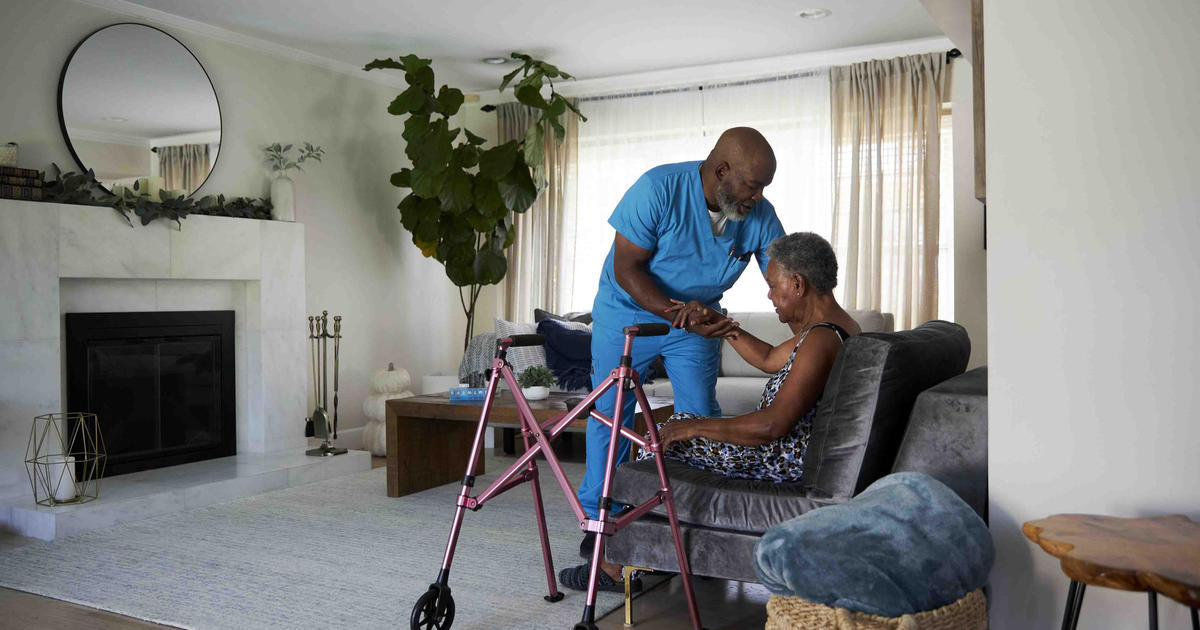One regulator's push to rein in title insurance costs
If you're among the country's more than 5 million homebuyers this year, you'll write some big checks when you close on your home. One of them -- for "title insurance" -- is way too big, especially if you live in New York state, according to Maria Vullo, the state's Financial Services superintendent.
Vullo is trying to crack down on what she calls "unscrupulous practices" in the highly concentrated title insurance industry. Vullo said four companies -- soon to be three -- own 90 percent of the national market and set prices in concert with each other. She said they also spend millions on inducements like strip clubs, sports tickets and lavish entertainment for the real estate lawyers, agents and loan officers who direct the homebuyer to their preferred title insurer.
"The industry has charged [these expenses] back to consumers as 'marketing costs,'" said Vullo.
Vullo's attempt to curb title insurers has important implications for homebuyers throughout the country. "This is not just a New York problem. There are abuses in many states. New York just shined a light on it," said Daniel Price, chief executive of OneTitle, a small title insurer doesn't set rates in concert with the others.
Executive Director Bob Treuber of the New York State Land Title Association responded that his organization "consists of thousands of title agents, many of them mom-and-pop companies that do not spend extravagantly but work night and day to make sure New Yorkers are protected when buying the most expensive purchase of their lives." The national organization of title insurers, the American Land Title Association, did not respond to a phone call and email requests for comment.
Everyone has to have a clear title to their home or other property, otherwise someone else can claim they own it or have a lien against it. That would make the property worthless and vulnerable to fraud. Title insurers not only do the search to ensure ownership before sale, they also provide insurance against something unforeseen that might pop up afterward regarding title. That seldom happens if their research, which may take 10 minutes or a few hours, is adequate.
That service is well rewarded. The title industry takes in $15 billion in revenue annually, and one of the biggest, First American, with around $5.8 billion in revenue in 2017, had a total return of 58 percent to shareholders that year. In New York state, which is almost 10 percent of the total U.S. market, title insurance is likely to cost homebuyers $1,300 on closing day, Vullo said.
"[We] are paying 40 percent more than Connecticut homebuyers," Vullo told a New York state legislative hearing in January 2018. "Massachusetts and New Jersey rates are more than 25 percent less." Treuber responded that it wasn't fair to compare New York to other states because they have different requirements for title insurance.
Then there's the question of what title insurers do with all their revenue. Vullo's investigation showed that title insurers pay out less than 5 percent of that in claims, compared to an 82 percent payout for health insurers. The rest goes to research, salaries and a lot of marketing, some of it "very objectionable," she said.
"Insurers and agents have paid for their clients to frequent a 'Gentlemen's Club' on Long Island, lavish sports bars and Hooters," she said, citing her five-year investigation of the industry's expenses. "Up to 14 percent of premiums [what homeowners paid for this insurance] was spent on tickets for sports events for lawyers who referred customers to title insurers. One insurer spent $1 million annually."
Treuber said the "Gentlemen's Club" represented one incident that "the industry has repeatedly denounced."
Why so much on lawyers? Because they attend closings and are supposed to be on the side of the buyer. But they can also use their influence to steer their client toward title insurers and others they favor, just as doctors can steer clients toward certain medications.
"When you walk into a closing, you are signing some of the biggest checks in your life," said OneTitle's Price. "Under normal circumstances you would question a bill for more than $1,000. But title insurance gets lost in there. And you have to have it before you get the home. Your lender requires it."
Title insurers are permitted to follow the rates set by the Title Insurance Rate Service Association, the industry's statistical agent, and with the exception of Price and one other small title insurer, Vullo said all those in New York state do use those rates, so there's no variation in them. Other kinds of insurers are also allowed to work together, according to state and federal laws, but almost none do, according to industry sources. Indeed, most, like car insurers, compete fiercely on price.
Because there's no disparity among the major title insurers in pricing, they focus instead on getting the people who count to sell their insurance to the homebuyer, which is why they offer so many perks. "It's reverse competition," said Price. "The product is not being marketed to the customer but to the real estate agents, and in New York, to the attorneys who represent the buyers."
Vullo's rule would have required that the insurers submit new rate applications to her office that would exclude "impermissible expenses" such as the ones she cited, and she predicted it would lower the cost of title insurance to the consumer. But that drew the ire of many state legislators, who submitted letters to Vullo opposing her and even tried to pass a bill to crush the new rule. Vullo said that would "give a license to bribery."
But the bill wasn't necessary because a state supreme court justice annulled her crackdown on expenses in early July, saying it was up to the legislature to decide what was legitimate marketing and what wasn't. The court found the evidence "was utterly insufficient to justify the draconian regulations," said Treuber.
Vullo's office indicated she's likely to appeal.



